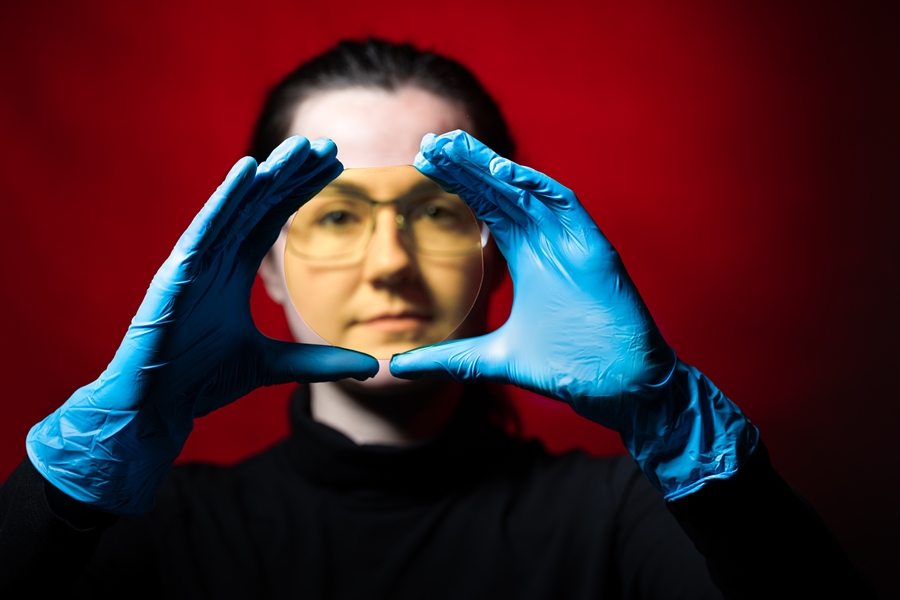The U of A is well positioned to be a leader in the United States’ semiconductor economy. Semiconductors, such as silicon, are essential materials in most electronic devices and advance performance in fields such as healthcare, the military, computing and transportation.
In the last two years, researchers at the U of A, primarily in electrical engineering and physics, have been awarded in excess of $45 million in funding to create a multi-user silicon carbide research and fabrication facility, a center dedicated to investigating the formation of atomic orders in semiconductor alloys and their effects on various physical properties, and, in collaboration with Montana State University, a Quantum Foundry to accelerate the development of quantum materials and devices.
Building on this expertise, the university has launched a major new initiative to increase investment in semiconductor research and awareness of what is already happening.
The U of A’s existing research foundation means it’s uniquely positioned to take advantage of the recent CHIPS (Creating Helpful Incentives to Produce Semiconductors) and Science Act, which is providing approximately $280 billion in funding to stimulate domestic research and manufacturing of semiconductors.
As a result of manufacturing and production shortages of essential computer chips during the pandemic, which are overwhelmingly manufactured overseas, the federal government has prioritized the onshoring of this critical technology.
Alan Mantooth, a Distinguished Professor of electrical engineering, noted in a recent interview that the semiconductor isn’t just important, “it’s foundational. A lot of things get built off semiconductors.”
Mantooth added, “I think it’s important to recognize that this region and Arkansas particularly, and this university, are very well positioned because we have that entire value chain. From the foundational work to the new fabrication going in, to backend processes that allow us to build all the way to the application, and the people that we work with, like John Deere, Caterpillar, Ford, G.M., Toyota… I think there is an opportunity to attract businesses to this state and region that we haven’t had before as a result of investment through the CHIPS Act and raised awareness of what’s here.”
U of A Chancellor Charles Robinson noted that there isn’t currently a semiconductor chip plant in Arkansas, and creating one is essential to retaining talent. “Historically, our graduates who want to work in this field have had to leave the area. Greater investment in and awareness about what is happening here will not only create opportunities to keep our graduates here, but incentivize even more talented people to come here. We’re at an inflection point where the university can step forward to maximize its potential in this field.”
“The university and state of Arkansas have a golden opportunity to help drive the United States’ semiconductor industry and transform the heartland of the nation in the process,” said Mike Malone, vice chancellor for economic development. “Through workforce development, talent attraction and retention, unmatched facilities and partnerships with global industry leaders, we are ready to take the lead.”
About the University of Arkansas: As Arkansas' flagship institution, the U of A provides an internationally competitive education in more than 200 academic programs. Founded in 1871, the U of A contributes more than $2.2 billion to Arkansas’ economy through the teaching of new knowledge and skills, entrepreneurship and job development, discovery through research and creative activity while also providing training for professional disciplines. The Carnegie Foundation classifies the U of A among the few U.S. colleges and universities with the highest level of research activity. U.S. News & World Report ranks the U of A among the top public universities in the nation. See how the U of A works to build a better world at Arkansas Research News.
Topics
Contacts
Alan Mantooth, distinguished professor
Department of Electrical Engineering
479-575-4838, mantooth@uark.edu
Andy Albertson, director of communications
Research and Economic Development
479-575-6111,
aalbert@uark.edu
